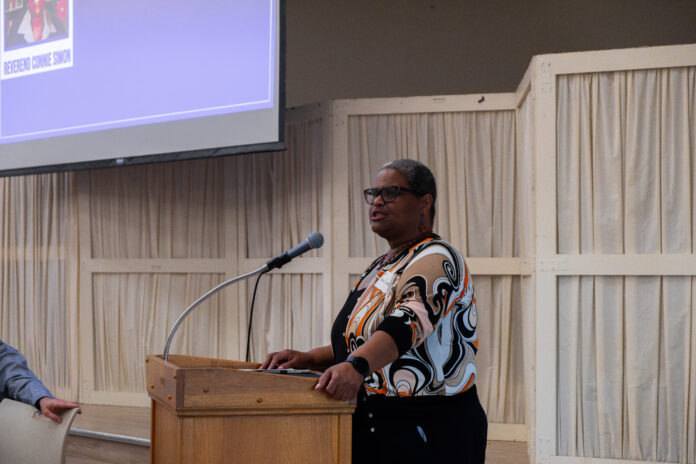City officials and housing professionals hold candid public discussion about Davis’ housing situation
By EMMA CONDIT — city@theaggie.org
On Thursday, May 16, Interfaith Housing Justice Davis hosted “Davis Housing Solutions: A Community Conversation,” serving as a public forum to tackle the important yet complicated topic of affordable housing. The evening was moderated by Mayor Josh Chapman and featured panelists from various organizations that define the state of affordable housing in Davis.
Dana Bailey of the Department of Housing and Human Services shared what Davis needs to support affordable housing.
“I think what Davis needs is a ‘yes in my backyard’ attitude,” Bailey said.
This idea opposes a “not in my backyard” (NIMBY) attitude, in which residents of a community support affordable housing in theory but do not want it to affect their community.
Affordable housing can come in many forms — non-profit rental housing, affordable homeownership programs, subsidized rent programs and more. It reduces hunger, increases civic engagement and improves the overall health and quality of communities.
Judy Ennis from the Davis Community Action Network (Davis CAN) shed light on the current dilemma the city is experiencing.
“[Davis] resisted the urge to grow,” Ennis said. “But because we did not grow, we have continued to leave people out. We are at 27% poverty. For children under 18 years old, we’re at 20% poverty. The average poverty [rate] for the state of California is 12.2%.”
Over the last 20 years, the city of Davis has experienced significant population growth, particularly due to the university. This has led to increased housing costs and a lack of housing to accommodate all of Davis’ potential residents.
Roberto Jimenez, the chief executive officer of Mutual Housing California, shared that communities face many challenges when creating affordable housing, especially in a small city like Davis.
“The two most difficult parts of developing affordable housing are access to land — Davis — and access to dollars — also Davis in this case,” Jimenez said. “We’re playing three-dimensional chess trying to put all these projects together. I’ve seen projects with 14 sources of funding built into them.”
Members of ¿Un Cafecito?, a group for Spanish-speaking mothers at Davis schools, shared stories of their struggles finding affordable housing in the Davis area. For instance, to qualify for affordable housing, you must make below a certain amount of money. So, if you make slightly too much money, you will not qualify for housing. If you make below the minimum amount, there is hardly enough money for school, medical and food expenses.
UC Davis students also experience housing insecurity at alarming rates, leading to rising concerns of affordable housing development for students. Robb Davis, the president of UC Davis’ Aggie Compass, highlighted that many students face transient housing insecurity and require affordability assistance.
“An undergraduate experience survey from 2022 found that approximately 2,400 students had been in a state of houselessness at one point during the year,” Davis said. “Many students find themselves in a vulnerability continuum.”
Throughout the evening, panelists discussed programs in Davis which can serve as a solution to this affordability issue. These programs, like Davis’ Housing Trust Fund, providing down payment assistance, increased density and new construction of affordable housing all require more support.
Jonathan London, a member of Davis CAN and professor of environmental justice at UC Davis, recommends that Davis residents employ political will in fighting for long-term affordable housing solutions.
“Students are a key victim of lack of affordable housing,” London said. “My recommendation for students is just get really involved in city politics and really push for affordable housing. There’s 10s of thousands of students — it’s such a potential powerful voice, and so many students are affected by this issue. It could really push city politics in a progressive way.”
Written by: Emma Condit — city@theaggie.org




